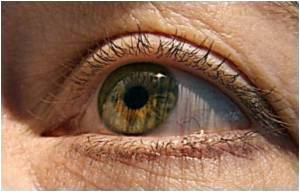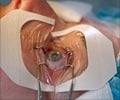In a recent study researchers have identified a new and unexpected biological pathway that appears to contribute to the development of glaucoma and its resulting in vision loss.

Further, at this same site, researchers found abnormal forms of a protein called gamma synuclein that is similar to abnormal forms of alpha synuclein, a related protein known for its key role in cell loss in Parkinson's disease. The findings suggest that a biological process similar to Parkinson's disease unfolds in glaucoma at the specific anatomical location pinpointed in this study for the first time.
Finally, researchers discovered that at this anatomical location, there is a surprising process whereby astrocytes remove the debris of neurons, the cells that die in neurodegenerative disorders such as glaucoma. It is likely that this newly discovered process involving removal of the debris of one cell by a neighboring cell is important not only in glaucoma and Parkinson's disease, but also for many neurodegenerative diseases.
"These findings are very exciting because they give us several novel targets for future interventions," said Dr. Nicholas Marsh-Armstrong, senior study author and a research scientist at Kennedy Krieger Institute. "I believe these findings put us on the cusp of discovering a treatment for glaucoma that may also have relevance for a number of other neurodegenerative diseases."
Future studies will examine this novel pathway and molecular/cellular mechanism to understand precisely what steps go awry in glaucoma and what can be controlled pharmacologically to identify interventions that slow the disease progression.
Dr. Marsh-Armstrong and other scientists at Kennedy Krieger Institute collaborated on this study with colleagues at the Johns Hopkins University School of Medicine, University of California at San Diego, Cardiff University in England, and the University of Murcia in Spain. This study is published in the Proceedings of the National Academy of Sciences (Early Edition ahead of print).
Advertisement













